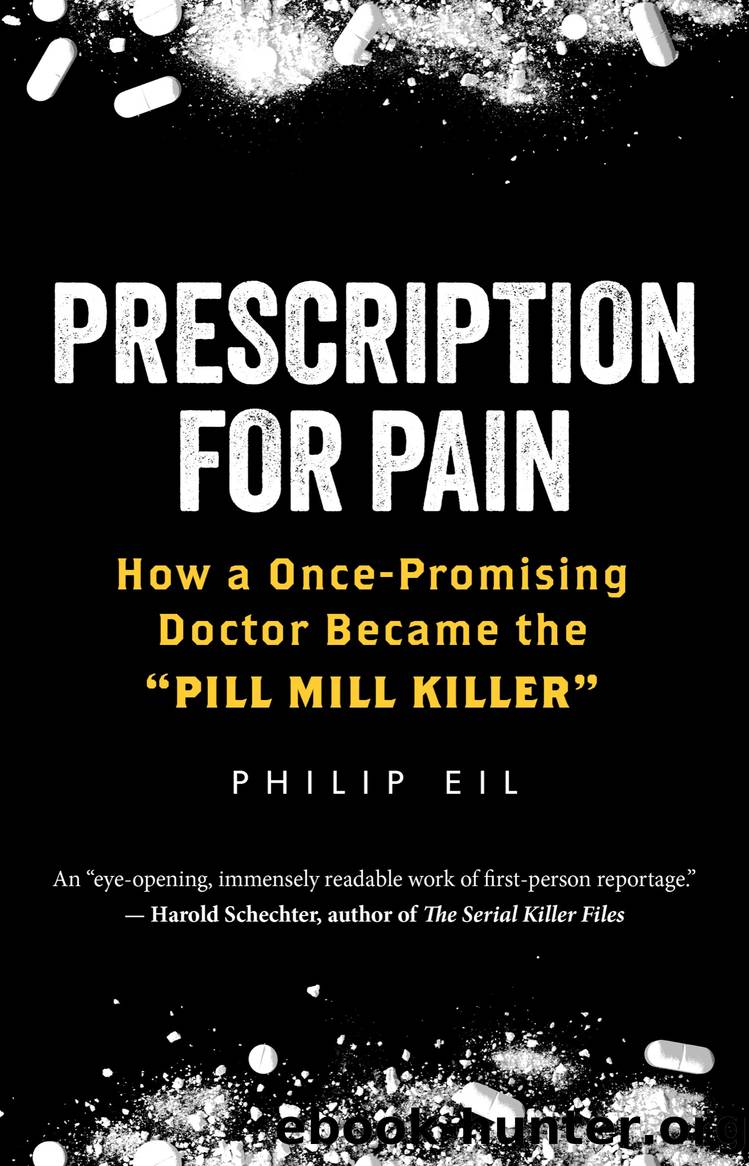Prescription for Pain by Philip Eil

Author:Philip Eil [EIL, PHILIP]
Language: eng
Format: epub
Publisher: Steerforth Press
Published: 2024-04-09T00:00:00+00:00
* * *
â
My dadâs position at Brown was, like many jobs in academic medicine, contingent on external funding. The university guaranteed only about half of his salary, and the rest was expected to come from grant funding.
For the first few years of the job, this wasnât a problem. Grant funding had been previously established when he arrived, and when the time came for reapplying, he succeeded.
But grant funding for medical research was then, as today, extremely competitive. In 1990, only around one in four applications to the National Institutes of Health received funding. And because the NIH was the predominant source of funding for academic research, if an application wasnât approved there, the applicant was left to scramble for elusive alternative options.
In my dadâs case, when he applied for NIH funding for a second time, around five years after his arrival at Brown, he didnât get it. When his attempts to secure funding from non-NIH sources fell short as well, the chair of his division told him he was going to have to look elsewhere for a job.
At this point, my dad faced a tough choice. He could try to find a new academic job, but he didnât think the grant-funding prospects would be much better anywhere else. Even on the slim chance that he did secure funds, it would likely involve selling our house in Providence and uprooting the family once more. And such a move carried the strong possibility that, once again, the grant funding could dry up and he would be back in a similar position.
But there was another option: He could leave the academy and seek work in private practice â that is, he could put his PhD on the shelf and focus on the MD aspect of his training by treating patients for a living. In doing so, he would almost certainly earn a steady and comfortable income while avoiding the volatility of academic life.
I donât personally remember this period in our familyâs history. In 1991, when my dad left Brown, I was six years old. I know about it because I interviewed him numerous times for this project. And as both a journalist and as his son, I was particularly interested in this moment.
Learning about my dadâs career in academia involved reconfiguring my sense of who my father was, professionally. Prior to this project, I knew him as a doctor who saw patients. I had perhaps seen the âPhDâ on his business cards, but I didnât appreciate that he had been trained to conduct research, worked in that field for fifteen years, and then left the academy with great reluctance.
My dad is not particularly inclined to talk about his feelings. And yet when he spoke about his pivot to private practice, he told me that he was disappointed in himself and âdepressedâ about the whole situation. Leaving academia felt to him like a kind of admission of defeat. For a period, he saw a therapist about it. âI struggled with it,â he told me.
As it turned out, the hardest part about leaving academia was the decision itself.
Download
This site does not store any files on its server. We only index and link to content provided by other sites. Please contact the content providers to delete copyright contents if any and email us, we'll remove relevant links or contents immediately.
Periodization Training for Sports by Tudor Bompa(8249)
Why We Sleep: Unlocking the Power of Sleep and Dreams by Matthew Walker(6694)
Paper Towns by Green John(5175)
The Immortal Life of Henrietta Lacks by Rebecca Skloot(4571)
The Sports Rules Book by Human Kinetics(4377)
Dynamic Alignment Through Imagery by Eric Franklin(4205)
ACSM's Complete Guide to Fitness & Health by ACSM(4049)
Kaplan MCAT Organic Chemistry Review: Created for MCAT 2015 (Kaplan Test Prep) by Kaplan(3998)
Introduction to Kinesiology by Shirl J. Hoffman(3763)
Livewired by David Eagleman(3762)
The Death of the Heart by Elizabeth Bowen(3602)
The River of Consciousness by Oliver Sacks(3597)
Alchemy and Alchemists by C. J. S. Thompson(3509)
Bad Pharma by Ben Goldacre(3420)
Descartes' Error by Antonio Damasio(3270)
The Emperor of All Maladies: A Biography of Cancer by Siddhartha Mukherjee(3140)
The Gene: An Intimate History by Siddhartha Mukherjee(3091)
The Fate of Rome: Climate, Disease, and the End of an Empire (The Princeton History of the Ancient World) by Kyle Harper(3055)
Kaplan MCAT Behavioral Sciences Review: Created for MCAT 2015 (Kaplan Test Prep) by Kaplan(2979)
